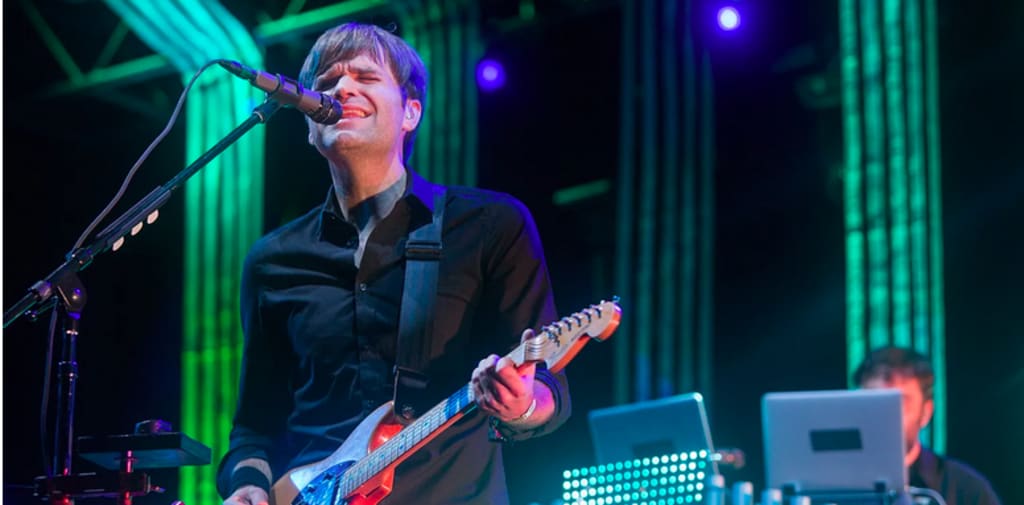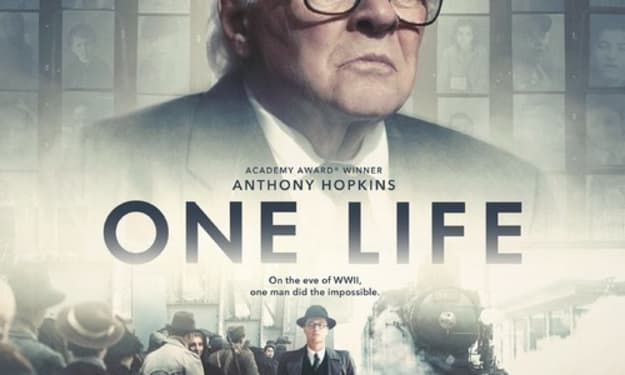Give Up Revisited
The album that brought electronica into indie music is still relevant 18 years later

Given the popularity and critical acclaim of the indie-electronic group The Postal Service, it might come as a surprise that they only released one studio album, Give Up. In the intervening eighteen years, they have given us a tenth anniversary edition and, now, a live album, originally recorded in 2013 and released in December 2020. But The Postal Service doesn’t even need a follow-up. The original album is regarded as something of a classic for both its unique soundscape and Gibbard’s distinctive songwriting. And more importantly, it has packed a mighty punch in indie music history, demonstrating for the first time that indie lyrical sensibilities can pair well with electronic production and paving the way for a range of successful crossovers since.
****
The Postal Service began as a collaboration between Ben Gibbard, frontman for the indie band Death Cab for Cutie, and electronic producer Jimmy Tamborello. Tamborello sent copies of his instrumental tracks to Gibbard through the mail; Gibbard recorded vocals (with backup vocals contributed by Jenny Lewis of Rilo Kiley and keyboard from fellow Death Cab member Chris Walla) and mailed the CDs back to Tamborello: hence the band’s name. Their sole album, Give Up, was released in 2003 by Sub Pop and went on to sell a million copies, becoming the second most popular record in that label’s history, topped only by Nirvana’s debut Bleach. The Postal Service’s sound has been described as a throwback to ‘80’s new wave pop. Tamborello’s industrial production, full of dull, heavy bass and shrill whistles, contrasts nicely with Gibbard’s hushed vocals and earnest, unabashedly romantic songwriting.
The opening track, “The District Sleeps Alone Tonight” is a portrait of post-breakup loneliness and inability to let go—"a stranger with your door key / explaining that I’m just visiting,” Gibbard croons, semi-apologetically. The song’s melancholy lyrics pair finely with instrumentals that gradually transition from heavy to upbeat. “Such Great Heights” is an earnest love song that balances nearly-saccharine lyrics (“I think that it’s a sign / that the freckles in our eyes / are mirror images and when we kiss they’re perfectly aligned”) with an understated, modest delivery and a finely wrought earworm of a tune. It was that album’s greatest hit, reaching the radio and appearing in several TV shows and commercials. “Nothing Better” pairs Gibbard’s dreamy, pining ex with a ruthlessly pragmatic response from co-vocalist Jenny Lewis, who sings about having to “prepare a lecture / on why I had to leave.” The song rings true for anyone who either can’t let go of love or has had to break up with a partner who can’t. “We Will Become Silhouettes” is a deliriously upbeat jam about a nuclear apocalypse, making it the perfect track for the COVID-19 pandemic. “This Place Is A Prison,” the album’s most affecting and thoughtfully written piece, compares depression to life in jail over a dull, droning bass lightened by delicate xylophone flourishes. “Brand New Colony” is almost achingly romantic and idealistic, promising that “everything will change,” and “Natural Anthem” is a soaring, propulsive electronic track that allows Tamborello’s production to shine.
It is by any measure an excellent album, though not a perfect one. The songwriting occasionally veers into the overwrought and indulgent. Do we really need to know that the narrator is blocking his soon-to-be-ex’s exit “like a goalie attending the net at the third quarter / of a tide game rivalry”? Is an apartment complex really “gaudy?” But the few lyrical misses are outweighed by moments of wit and poignance. Gibbard’s songwriting brings to life a character who is remarkably consistent throughout the album. Just give up already, we want to tell this persona as he continues to pursue a woman who is clearly over him. But he won’t, and his persistence and optimism in the face of even painful circumstances render him endearing and relatable still, years after the album’s original release.
****
2013 saw the release of a tenth anniversary deluxe edition that included the original ten songs, several new tracks, and various covers and other ephemera. It’s geared towards diehard fans rather than newcomers, and isn’t an improvement over the original. The new tracks feel thin and underproduced compared to the album originals—but they sound much better in Everything Will Change, the live album released in late 2020. On the live album, the original Give Up songs sound more organic and passionate than their muted album counterparts, allowing Gibbard and Lewis’s vocals and guitar to shine while granting Tamborello freedom to pull out some creative electronic flourishes. The concert recording feels decidedly more folk-rock than EDM, but maintains an infectious danceable energy all the same. The live album is a thoroughly enjoyable update of the original.
****
What The Postal Service has lacked in new material in the last 18 years, it has more than made up for in influence. Give Up more or less singlehandedly spawned the subgenre “indietronica,” and lit the way for an effective partnering of indie and electronic sensibilities that has hugely influenced indie music in the nearly two decades since. Today, alternative bands go electronic all the time: Coldplay, a rock band, went electronic for their fourth album Myloxyloto and collaborated with renowned EDM producer Avicii—who himself came to prominence with the folk-electronica-hybrid hit “Wake Me Up”—on their later hit single “Sky Full of Stars.” Even banjo-plucking folk-rockers Mumford and Sons experimented with electronic sounds on their third LP, Wilder Mind. The xx, an alternative group that pairs hushed vocals and melancholy songwriting with understated electronic production, achieved an impressive pop crossover. Owl City, whose music critics have compared to that of The Postal Service, showed the world that small-scale, bedroom-produced pop could top the charts with his smash-hit “Fireflies.” And the recent phenomenon of hyperpop has promiscuously combined genres as wide ranging as pop, hip-hop, and metal, often with skillful, gleefully subversive songwriting to boot. The Postal Service showed us, all the way back in 2003, that futuristic sounds and heartfelt songwriting make a fine partnership and has hugely influenced the direction of indie music ever since. Not bad for a band with only one album.
About the Creator
Anna Hamilton
scientist, artist, aspiring author. teacher. idealist. person who likes to think a lot about the world. Aspergerian. follower of Jesus. person who cares a lot.
I am trying to be a writer :)






Comments
There are no comments for this story
Be the first to respond and start the conversation.